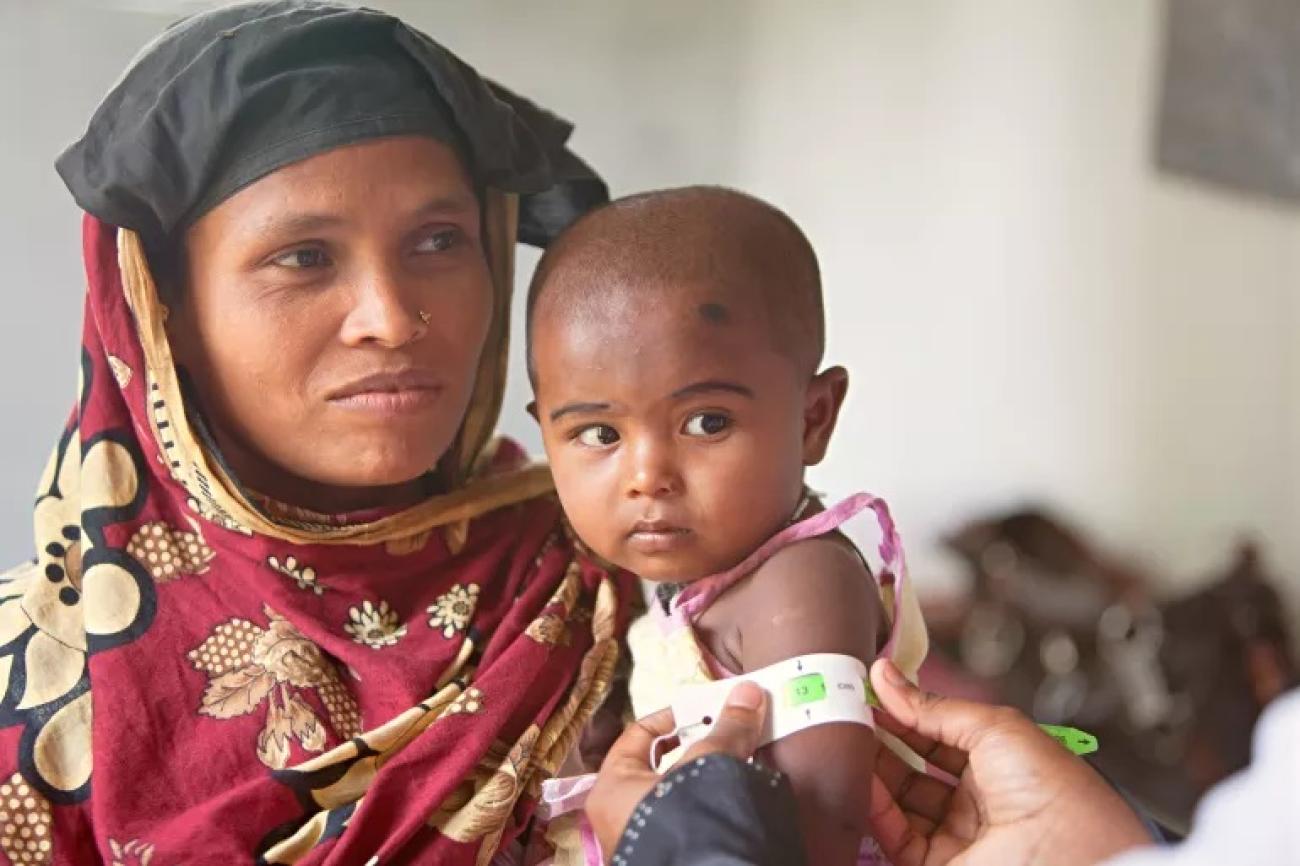Poor Diets Damaging Children’s Health; Together, We Can Change That

Sunday 25 February 2024
If children eat poorly, they grow poorly and they live poorly. That is why, the Convention on the Rights of the Child, to which Bangladesh is a signatory, states that every child has the right to healthy food and nutrition. And yet, food supply chains, eating habits and food environments are failing our most precious citizens.
An alarmingly high number of children in Bangladesh suffer the consequences of poor diets. This puts them at risk of poor brain development, weak learning, low immunity, increased infections – and even death.
The stakes are highest in the first two years of life. Good nutrition can lay the foundation for healthy brain and body development, as well as how a child learns in school. Conversely, poor nutrition can cause irreversible harm. Despite this knowledge, across Bangladesh, in too many homes, we see poor eating and feeding practices start from the earliest days of a child’s life. For example, although breastfeeding can save lives, almost half of babies under two years in Bangladesh are still not breastfed.
Today in Bangladesh, almost 2 in 3 children, between six months and two years of age, do not receive a diverse enough diet to support their rapidly growing bodies and brains. Additionally, nearly 24% of children under five years old are stunted, meaning they are too short for their age, and 11% are wasted, meaning that they are too thin for their height. Between 2017 and 2022, wasting increased by nearly 40%, largely due to the COVID-19 pandemic and increased food prices.
The impact of poor diets is not limited to young children. As children grow, their exposure to unhealthy food is alarming, driven largely by insatiable marketing and advertising, the abundance of ultra-processed foods, and increasing access to fast food and sweetened beverages. One quarter of adolescents do not eat food that is sufficiently diverse or iron-rich. Only 22% of teenagers eat foods high in vitamin A.
As a result, among Bangladeshi adolescents, the rates of stunting, underweight or thinness, and overweight are 36%, 11% and 16% respectively. Shockingly, almost 36% are anaemic.
The government of Bangladesh has made significant strides in promoting national policies and plans to improve child nutrition. For example, adolescents enrolled in the Adolescent Nutrition programme receive weekly iron folic acid supplements, weekly nutrition education sessions and deworming every six months. Their weight, height and Body Mass Index (BMI) are measured twice a year. The government has established more than 400 facilities to treat children affected by severe wasting. But for too many children, these services are out of reach.
The National Nutrition Policy 2015, as well Bangladesh’s Second National Plan of Action for Nutrition, are both strong drivers of progress. Accordingly, Bangladesh is on course to achieve the World Health Assembly 2025 target of a 40% reduction in the number of children under five who are stunted. Furthermore, the Bangladesh National Nutrition Council has boosted coordination between health, education and social protection to address malnutrition.
Despite this strong national push, too many women remain malnourished. When pregnant women eat poorly, their babies live poorly and are likely to be malnourished. In addition, child marriage, early pregnancy and poor-quality diets for pregnant and malnourished women have offset progress made by Bangladesh. Alarmingly, every second woman of reproductive age is anaemic. This translates to an estimated 604,000 children being born with low birth weight – a quarter of the annual global burden – putting them at greater risk of disease later in life.
In response, the National Nutrition Services, under the Ministry of Health and Family Welfare, with UNICEF support, piloted a programme in August 2022 to provide multiple micronutrient supplements to 65,000 pregnant women at public health facilities to reduce anaemia and low birth weight. Containing 15 essential vitamins and minerals, the supplements improve nutrition in pregnant women.
In October 2022, collaboration between the Ministry of Health and Family Welfare and the Ministry of Labour and Employment plus UNICEF led to a pioneering programme called Mothers@Work. Targeting the garment industry, 193 factories receive support to provide paid maternity leave, breastfeeding spaces, childcare facilities, healthcare and more.
While these initiatives are to be applauded, much more needs to be done. The current food system is failing the children and women of Bangladesh. UNICEF is committed to working with the newly elected government to support nutrition services for children and women. But we cannot do it alone. We need the private sector and civil society to join us to address the causes of unhealthy eating.
To that end, there are five actions we can take, together, to build a healthier nation:
1. Use policies and legal measures – marketing restrictions, compulsory easy-to-understand labelling, and taxation – to compel the food industry to reduce the salt, sugar and fat content of foods and beverages.
2. Invest in recruiting and training community-based health workers to deliver counselling to improve adolescent girls’ and women’s diets.
3. Provide free multiple micronutrient supplements to prevent anaemia in the most vulnerable women.
4. Make it easier for families to eat nutritious diets by providing food, cash, and vouchers.
5. Engage children and youth as nutrition and climate justice advocates.
When it comes to nourishing children, it is about giving them the right food, in the right quantity, at the right time, with the right information to make informed choices as they get older. That sounds like a recipe for success.



